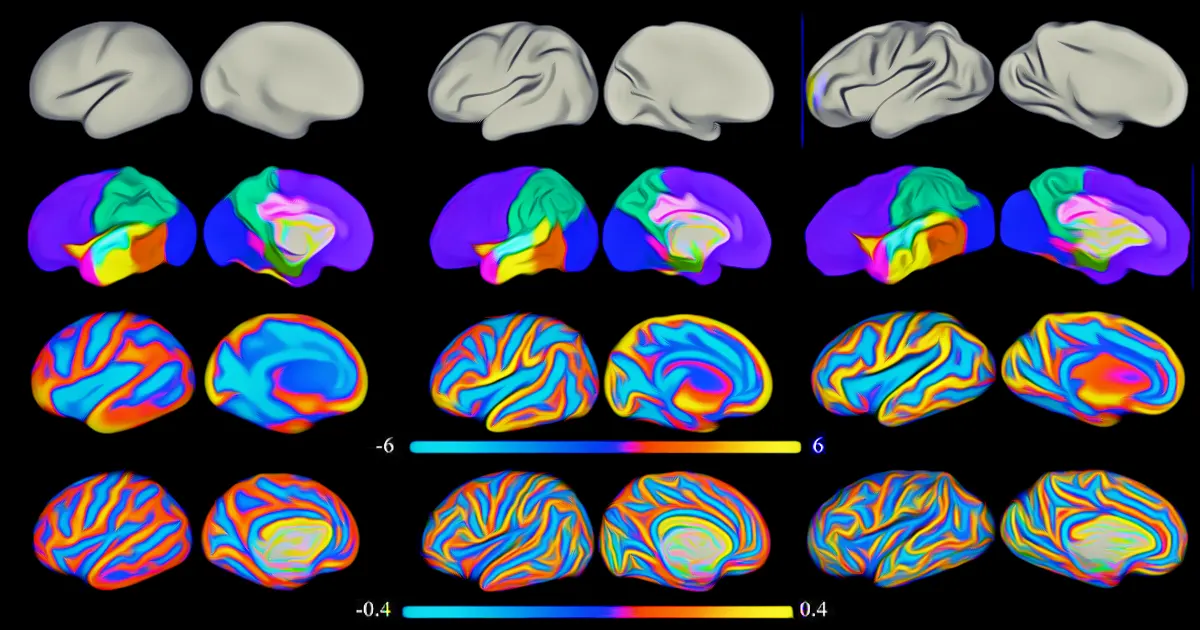Welcome to the extraordinary journey of understanding and nurturing newborn brain development. The early months of a baby’s life lay the foundation for cognitive growth, influencing their entire future. In this comprehensive guide, we’ll delve into the intricacies of newborn brain development, exploring key stages, factors influencing growth, milestones, common concerns, and proactive measures for optimal cognitive health.
1. The Journey Begins: Newborn Brain Basics
A. Definition and Overview of Newborn Brain Development
Newborn brain development refers to the remarkable process through which a baby’s brain forms and matures during the initial stages of life. At birth, a baby’s brain is already equipped with billions of neurons, forming the basis for all cognitive functions.
B. Key Stages in the First Few Months
The first few months are crucial as the brain rapidly develops. Key stages include the formation of neural pathways, synapse development, and the establishment of critical connections that lay the groundwork for future learning and behavior.
C. Role of Genetics in Cognitive Development
Genetics plays a significant role in determining a child’s cognitive potential. While genes provide the blueprint, environmental factors and experiences profoundly influence how these genetic instructions manifest in a child’s developing brain.
2. Factors Influencing Newborn Brain Development
A. Nutritional Impact on Cognitive Growth
- Importance of Breastfeeding: Breast milk is a powerhouse of nutrients crucial for brain development. It contains essential fatty acids like DHA, vital for the growth of neural tissues and cognitive function.
- Essential Nutrients for Brain Health: Nutrients such as iron, zinc, choline, and vitamin D are essential for optimal brain development. A well-balanced diet for both the mother during pregnancy and the infant post-birth is paramount.
B. Environmental Stimuli
- Sensory Experiences and Brain Connectivity: Babies explore the world through their senses, and these early sensory experiences play a pivotal role in shaping neural connections. Engaging infants with various stimuli fosters cognitive growth.
- Creating a Stimulating Environment: A nurturing environment with exposure to varied stimuli, such as soft music, contrasting visuals, and gentle touch, enhances synaptic connections and supports healthy brain development.
C. Sleep and its Crucial Role
Adequate sleep is vital for cognitive consolidation in newborns. During sleep, the brain processes and consolidates information, contributing to memory formation and overall cognitive function.
In the next section, we’ll explore the significant milestones and indicators of newborn brain development, offering insights into what to expect and how to support your baby’s growth.
3. Milestones and Indicators
A. Tracking Cognitive Milestones
- Recognizing Early Signs of Brain Development: Parents often eagerly await their baby’s first smiles, coos, and grasps. These are early indicators of cognitive milestones, showcasing the brain’s ability to coordinate movements and respond to stimuli.
- Common Variations in Milestone Achievement: Every baby is unique, and variations in reaching developmental milestones are normal. Understanding the range of typical development helps alleviate parental concerns.
B. Monitoring Physical and Cognitive Development Together
- Motor Skills and Brain Connectivity: The development of motor skills, such as reaching and grasping, is intricately linked to brain connectivity. As babies explore their surroundings, neural pathways responsible for coordination and movement are strengthened.
- The Interplay of Physical and Mental Growth: Recognizing the symbiotic relationship between physical and cognitive development emphasizes the importance of holistic care. Activities promoting both physical and mental engagement contribute to well-rounded growth.
4. Common Concerns and FAQs
A. Addressing Parental Concerns
- Delayed Milestones: When to Worry: It’s natural for parents to feel anxious if their baby’s development appears delayed. However, variations in developmental timelines exist, and concerns should be addressed if significant delays persist.
- Seeking Professional Guidance: When in doubt, consulting with pediatricians and developmental specialists ensures timely intervention if needed. Early identification and support can make a substantial difference.
B. Frequently Asked Questions
How Can I Stimulate My Baby’s Brain?
Providing a stimulating environment, engaging in interactive play, and exposing your baby to various sensory experiences are effective ways to support cognitive development.
What Toys Enhance Cognitive Development?
Toys that encourage exploration, problem-solving, and sensory engagement, such as soft rattles, textured objects, and colorful mobiles, can aid in cognitive stimulation.
5. Nutrition and Brain Health
A. Importance of Early Nutrition
- Breast Milk vs. Formula: The Debate: Breastfeeding provides a unique blend of nutrients, antibodies, and essential fatty acids crucial for brain development. While formula can be a suitable alternative, breastfeeding is encouraged due to its numerous benefits.
- Introduction of Solid Foods and Brain Development: As your baby transitions to solid foods, introducing nutrient-rich options is vital. Foods high in iron, omega-3 fatty acids, and vitamins contribute to overall cognitive health.
6. Play and Interaction
A. Power of Play in Cognitive Growth
- Choosing Age-Appropriate Toys: Selecting toys that align with your baby’s developmental stage is key. Soft toys for tactile exploration, colorful objects for visual stimulation, and interactive toys for engagement foster cognitive growth.
- Interactive Activities for Brain Stimulation: Engage in activities that encourage interaction, such as reading, singing, and simple games. These interactions support language development, memory formation, and problem-solving skills.
7. Cognitive Developmental Disorders
A. Overview of Common Disorders
- Autism Spectrum Disorder: Understanding early signs and seeking early intervention is crucial for children with Autism Spectrum Disorder. Early therapies and support can significantly improve outcomes.
- Attention Deficit Hyperactivity Disorder (ADHD): Recognizing signs of ADHD in early childhood enables parents and educators to implement strategies that support the child’s cognitive and behavioral development.
8. Parental Involvement and Support
A. Building a Strong Parent-Child Bond
- The Role of Responsive Parenting: Responding promptly to your baby’s cues fosters a secure attachment, positively impacting cognitive development. Emotional security forms the basis for future learning and exploration.
- Encouraging Exploration and Curiosity: Creating a safe environment that encourages exploration allows babies to satisfy their natural curiosity, promoting cognitive growth through sensory experiences.
9. Conclusion
In conclusion, the journey of newborn brain development is both fascinating and crucial. From understanding the basics to navigating milestones and addressing concerns, proactive parental involvement plays a pivotal role. By providing a stimulating environment, ensuring proper nutrition, and fostering a strong parent-child bond, you set the stage for a lifetime of cognitive health.
Remember, each baby is unique, and developmental timelines vary. Embrace the joy of discovery, seek guidance when needed, and relish the moments that contribute to your baby’s cognitive blossoming. Stay tuned for more insightful articles on parenting and early childhood development.


